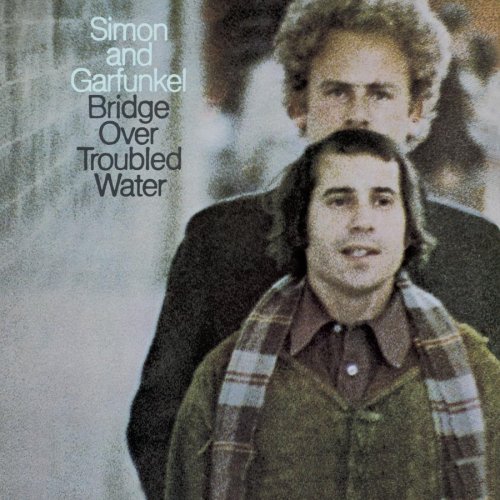1. Simon & GarfunkelBridge Over Troubled Water

Bridge Over Troubled Water comes out in ’70, ‘The Boxer’ comes on the radio and just hooks me in. The length of it, the sound of it, the yearning that’s in it – it really just takes me to a place I’ve never been before. But I haven’t got a record player. So the only way I can hear it is by chance on the radio. So, Christmas ‘69, my parents bought me a reel-to-reel tape recorder, as big as a flat screen television and twice as heavy. But that allowed me to start going round to the houses of my mates and taping their big sisters’ record collections. And at the time, big sisters would have been thirteen, fourteen, fifteen years old and chances are they are into Simon And Garfunkel which was the kind of music a thoughtful young person might listen to. They think they’re being sophisticated, it’s reflective and sounds like it’s talking to them. Once you’ve opened the door to ‘Bridge Over…’ it doesn’t take you long to get back to ‘Mrs. Robinson’, ‘Sound of Silence’, ‘America’ – it was a gateway into a whole singer-songwriter genre that really chimed with me. Reflective, personal songs. When I was twelve, I wrote a poem at school that wasn’t particularly brilliant but it was good enough that my English teacher wrote to my parents to ask if I had copied it from a book at home. When it transpired it happened, they arranged for me to read it out on local radio. So I thought: "This is cool! This is a way of getting attention, I like the vibe of this, maybe I can do something here!" Bridge Over Troubled Water was so sonically lush, you listen to it and you keep hearing stuff you didn’t hear before. While I didn’t grasp all the intricacies of what they were talking about, I grasped the sound of it and most importantly, the tunes – Paul Simon is a good lyricist but he’s an amazing writer of tunes – and if you end up basing your musical output on Paul Simon and Holland-Dozier-Holland, chances are you’re gonna have an ear for a tune. This is where my politics came from in some way, the singer-songwriters and Motown. Because Paul Simon clearly was making some comments on the way America was. I managed to get all the records and that just really grounded me in the idea of tunes and confessional lyrics.


